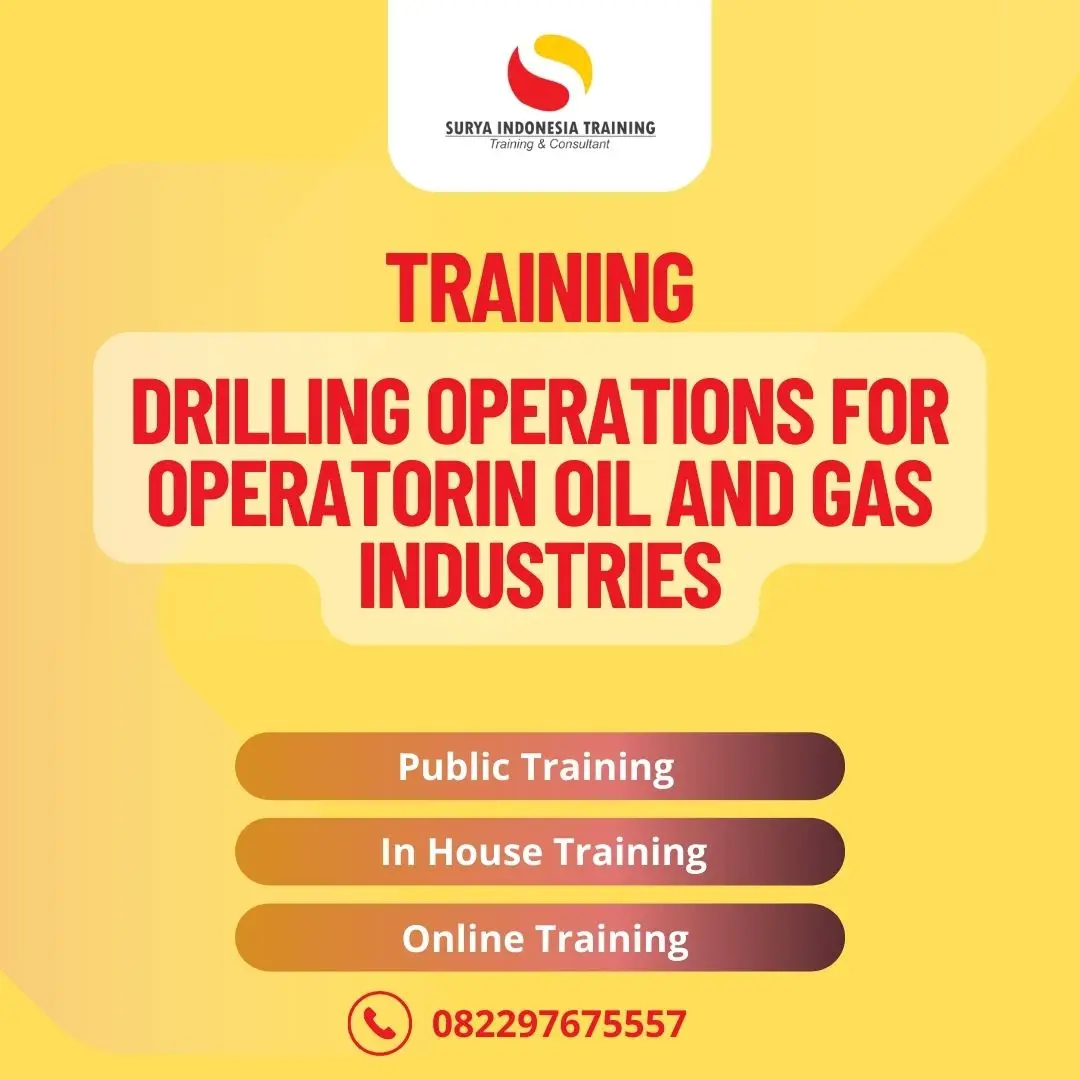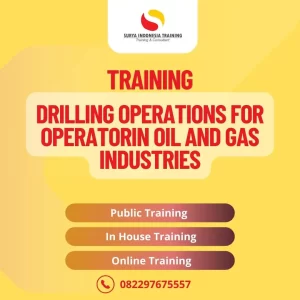
Description Drilling Operations For Operatorin Oil And Gas Industries Online
Drilling operations in the oil and gas industry involve the deployment of specialized equipment to bore into the Earth’s crust, extracting hydrocarbons. Operators oversee the entire process, managing drilling equipment, monitoring safety protocols, and ensuring efficient extraction while adhering to environmental regulations and company standards.
Objectives Drilling Operations For Operatorin Oil And Gas Industries
- Safety: Ensure all drilling operations comply with rigorous safety standards to protect personnel, equipment, and the environment from potential hazards.
- Efficiency: Maximize drilling efficiency by optimizing equipment performance, minimizing downtime, and streamlining operational processes.
- Cost Control: Manage drilling operations to minimize costs while maintaining high productivity levels, effectively utilizing resources and optimizing budget allocations.
- Environmental Compliance: Adhere to environmental regulations and implement best practices to minimize the ecological footprint of drilling activities, including waste management and emissions reduction.
- Quality Assurance: Ensure the quality of drilling operations by monitoring parameters such as wellbore integrity, fluid properties, and drilling fluid circulation to achieve successful outcomes and meet project objectives.
Materials Drilling Operations For Operatorin Oil And Gas Industries
- Drill Bits: Various types including roller cone bits, polycrystalline diamond compact (PDC) bits, and diamond drill bits for cutting through different formations.
- Drill Pipe: Steel pipe sections used to transmit drilling fluid and torque to the drill bit during drilling operations.
- Casing and Tubing: Steel pipe installed in the wellbore to provide structural integrity and prevent collapse, corrosion, and fluid migration.
- Drilling Fluids: Various types such as water-based, oil-based, and synthetic-based fluids used for cooling, lubrication, carrying cuttings, and maintaining well pressure.
- Blowout Preventers (BOPs): Safety equipment designed to prevent uncontrolled release of fluids from the wellbore during drilling operations.
- Mud Pumps: Equipment used to circulate drilling fluid down the drill string and back up the annulus during drilling.
- Cement: Used to seal the annulus between the casing and the formation, providing zonal isolation and preventing fluid migration.
- Wellhead Equipment: Surface equipment installed at the top of the wellbore to control the flow of fluids in and out of the well.
- Downhole Tools: Equipment such as logging tools, packers, and valves used for various downhole operations, including measurement, control, and intervention.
- Personal Protective Equipment (PPE): Safety gear including hard hats, gloves, safety glasses, and steel-toed boots to protect personnel from potential hazards on the drilling site.
Participants Drilling Operations For Operatorin Oil And Gas Industries
- Drilling Supervisor: Oversees the entire drilling operation, including planning, execution, and safety compliance.
- Drillers: Operate drilling equipment and machinery, following instructions from the drilling supervisor to execute drilling tasks accurately and safely.
- Mud Engineers: Responsible for designing and maintaining the drilling fluid system, ensuring proper fluid properties and performance throughout the drilling process.
- Roughnecks: Assist drillers in various manual tasks such as handling drill pipe, mixing drilling fluids, and maintaining equipment on the drilling rig.
- HSE (Health, Safety, and Environment) Personnel: Ensure compliance with safety regulations and implement measures to prevent accidents, injuries, and environmental damage during drilling operations.
PEMATERI/ TRAINER JAKARTA
Pelatihan ini akan diberikan oleh Trainer dari kalangan Praktisi, Akademisi dan Konsultan berpengalaman di bidangnya masing-masing.
FAQ tentang Surya Training
Q : Berapa minimal running pelatihan ini ?
A : Pelatihan ini akan running idealnya minimal dengan 3 peserta
Q : Apakah bisa jika saya hanya ingin pelatihan sendiri aja / private course ?
A : Bisa, kami akan membantu menyelenggarakan pelatihan 1 hari jika ada persetujuan dari klien
Q : Dimana saja pelatihan biasanya di selenggarakan?
A : Pelatihan kami selenggarakan di beberapa kota besar di Indonesia seperti Bandung, Jakarta, Yogyakarta, Surabaya, Malang, Bali, Lombok dan beberapa negara seperti Singapore dan Malaysia
Q : Apakah bisa diselenggarakan selain di kota lain?
A : Penyelenggaraan pelatihan bisa diadakan di kota lain dengan minimal kuota 5 orang setiap kelas
Q : Apakah bisa juga diselenggarakan secara IHT/ In House Training di Perusahaan klien ?
A : Bisa diselenggarakan secara IHT di Perusahaan klien
Q : Apakah jadwal bisa disesuaikan dengan kebutuhan klien ?
A : Jadwal pelatihan dapat di sesuaikan dengan kebutuhan klien. Namun konfirmasi minimal 2 minggu sebelum pelaksaan pelatihan.
Informasi lebih lanjut
Customer Service : +62 821-1058-4566 (Available WhatsApp)
email : cro.suryatraining@gmail.com
JADWAL TRAINING BANDUNG 2024
16 – 17 Januari 2024
13 – 14 Februari 2024
05 – 06 Maret 2024
24 – 25 April 2024
21 – 22 Mei 2024
11 – 12 Juni 2024
16 – 17 Juli 2024
20 – 21 Agustus 2024
17 – 18 September 2024
08 – 09 Oktober 2024
12 – 13 November 2024
17 – 18 Desember 2024
Jadwal tersebut juga dapat disesuaikan dengan kebutuhan calon peserta






